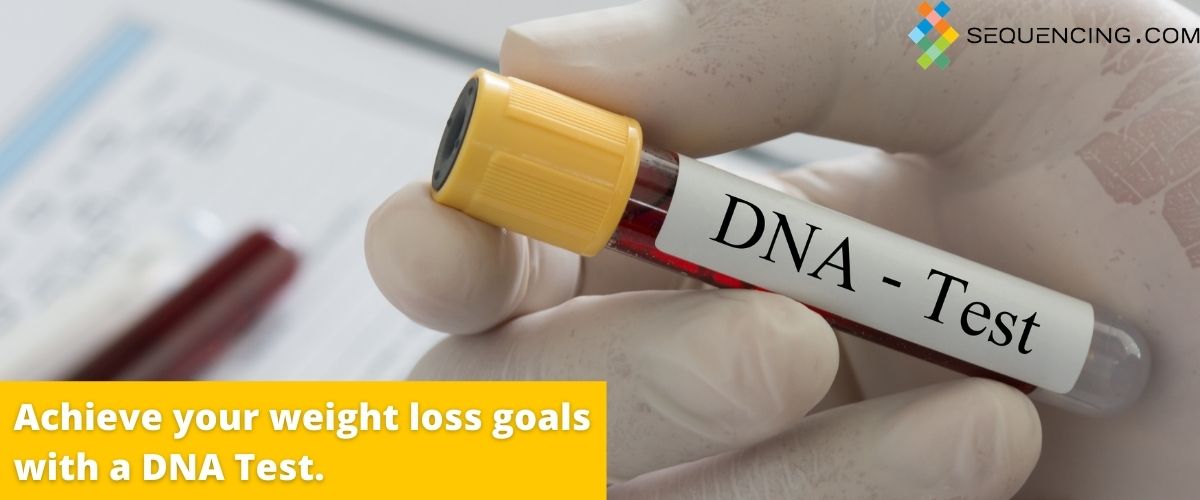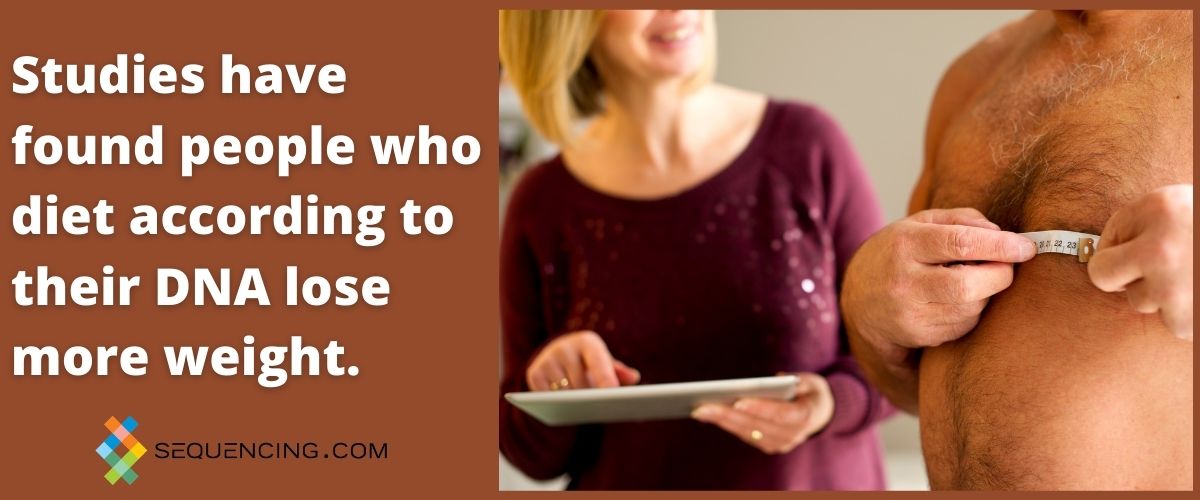A weight loss DNA test can help you determine what you should be eating to lose weight much more quickly and easily. DNA testing is available on Sequencing.com and many other DNA testing companies. Before jumping into buying a weight loss DNA test, it’s important to understand how it works and how you can use it.
Nutrigenomics - Using Genetic Testing for Weight Loss
Nutrigenomics, the study of genetics and nutrition, helps people understand how their bodies respond to macronutrients (macros), such as fat, carbohydrates (carbs), and fat. Recent studies have found dieting according to a genetic test is much more effective in losing weight and keeping it off long term.
Carbs have received a bad name because of trending diets such as keto. Carbs are not the enemy for most people. Most individuals can breakdown and use carbs effectively for energy. What happens for some people is that it takes them longer to use all of the carbs they consume and that can lead to weight gain, especially when combined with an overabundance of other macronutrients such as fats and proteins.
The only way to know if someone doesn’t use carbs as well as someone else is to use a weight loss DNA test. This DNA test produces DNA data that is analyzed for information concerning the risk of being overweight or obese and the factors associated with that.
Learn More: What Does DNA Have to Do with Weight Loss?
How to Use a Weight Loss DNA Test to Achieve Weight Loss Goals

Someone interested in using DNA for weight loss should have a DNA test, which usually consists of a swab of the cheek. Test results will reveal the genetic makeup of the person. To reveal the information that can be used for weight loss, the DNA data needs to be analyzed for genetic variants researchers have found that lead to obesity.
A weight-loss DNA test report will describe the genotype of the person. This genotype can be used for weight management through personalized nutrition. Many people take the report they receive from the weight loss DNA test to a nutritionist or registered dietitian to create a meal plan.
Learn More: Personalized Weight Loss Plan
Why Weight Loss DNA Tests Work
Knowing the body’s ability to breakdown macronutrients is an important part of losing weight. Bodyweight is in direct correlation with how much food is consumed and recent studies have found that quality of food matters along with quantity.
Diets should not be a one-size-fits-all program. It must be individualized to work, and looking at genetic markers is one way to do that. Genetic test results provide us with information on what is considered healthy eating for the individual.
When people know more about their bodies and how they work and make lifestyle changes, they are more likely to reduce body fat to reach a healthy weight.
Learn More: DNA Testing for Weight Loss Diets
Genetic Information for a Healthy Weight

Achieving your weight loss goals starts here. We can help you reduce your body mass index with DNA results that provide detailed information on gene variants making it hard for you to lose weight. This will reduce disease risk, such as heart disease.
Sequencing.com offers DNA testing kits that can be used with the weight loss app to analyze the data. This will give you the DNA results needed to create an effective weight loss plan.
For those who have already performed a DNA test with 23andMe, MyHeritage (check out our MyHeritage review), or other DNA testing companies, the DNA data can be uploaded to Sequencing.com for free by creating an account. The data can then be used with any app offered by Sequencing.com to learn about weight-related genetic information as well as disease risk, athletic performance, and many others related to health and wellness.
Use our genetic testing for weight loss app to discover genetic predispositions for being overweight or obese. It may just be what you need to give your body what it truly needs to work hard for you instead of working against you.